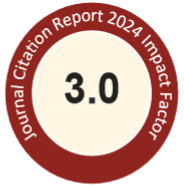Abstract
Streptococcus thermophilus, is a lactic acid bacterium, commonly used as a starter organism for the manufacture of fermented dairy products. In this study, S. thermophilus BCRC 14085 was first subjected to different cold shock treatments (10, 15 and 20 for 2 and 4 h). The viabilities of cold-shocked cells in subsequent lethal stress environments such as low temperature (5, -20°C), high temperature (58°C), acidic pH (2.5), high osmotic pressure (75% sorbitol) and high ethanol (20%), were then compared with the controls. Results revealed that the cold shock response of S. thermophilus varied with the cold shock treatments and types of lethal stress. Compared with control cells, S. thermophilus cold-shocked at 10°C for 2 and 4 h, or 15°C for 2 h showed enhanced survival, while the cold-shocked cells at 20°C for 4 h exhibited reduced survival at -20°C. Cold shock did not affect the viability of S. thermophilus at 5°C. Regardless of the duration of cold shock, the 10°C cold-shocked cells exhibited enhanced survival while other cold shocked cells showed reduced viability at 58°C. Pre-adaptation at 10 or 15°C for 2 or 4 h enhanced S. thermophilus's tolerance against high osmophilic pressure and 20% ethanol. Finally, the 10°C cold-shocked cells showed enhanced survival at pH 2.5. Thus, the enhanced stress resistance of S. thermophilus induced by an appropriate cold shock treatment may yield its potential benefits in the food industry.
Recommended Citation
Fang, S.-H.; Chiang, S.-H.; Hsu, S.-Y.; and Chou, C.-C.
(2012)
"Cold shock treatments affect the viability of Streptococcus thermophilus BCRC 14085 in various adverse conditions,"
Journal of Food and Drug Analysis: Vol. 20
:
Iss.
1
, Article 15.
Available at: https://doi.org/10.38212/2224-6614.2077

